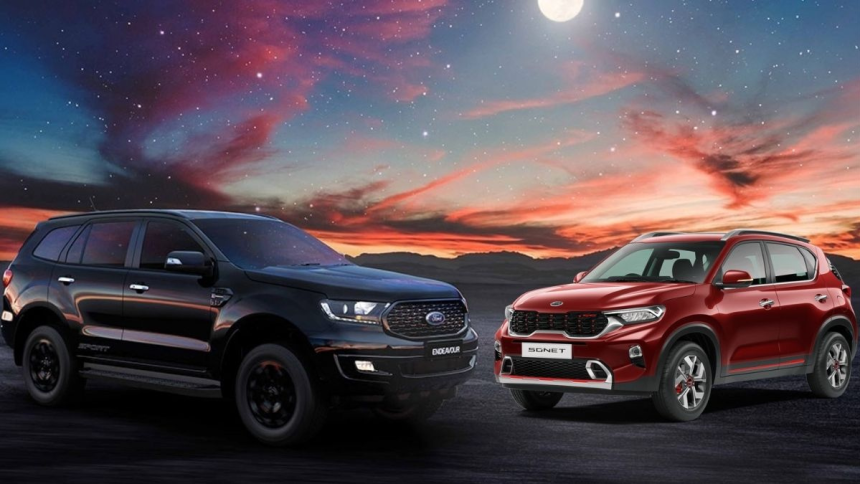Deciding on the best SUV can feel as difficult as aiming at a target that keeps moving. Crossovers are ideal for those who need a compact vehicle, and 4x4s are perfect for those who prefer something bigger. While the look of a car can be eye-catching, how it helps with your daily tasks is what counts most. If you’re thinking about how much you can afford, a car finance calculator can quickly show if your chosen car fits your budget before you get too excited.
Urban Agility or Open-Road Strength?
Navigating through crowded streets, squeezing into narrow bays, and darting between buses requires a car that doesn’t feel like a burden in city traffic. Compact SUVs excel in this arena. Light steering, quick throttle response, and modest turning radii make them ideal for commuters and urban dwellers.
Full-size SUVs, on the other hand, come into their own when there’s space to roam. Motorways, long-distance trips, or rural roads suit their design better. Their sheer size can be overkill in tight corners but offers security and road presence when covering serious mileage.
Fuel Efficiency and Daily Costs
One of the starkest differences lies in fuel use. Smaller SUVs, often built on hatchback or saloon platforms, tend to use lighter engines and hybrid tech to stretch every litre further. Ideal for drivers who clock up shorter, more frequent journeys, these models keep fuel bills manageable.
By contrast, full-sized variants usually house larger engines—frequently six cylinders or more—which provide torque and pulling power, but at a cost. Expect higher consumption, especially in stop-start traffic. For families travelling long distances with lots of luggage or towing gear, the trade-off may be worth it.
Cabin Comfort and Seating Space
Inside the cabin, the size gap becomes more obvious. Larger SUVs accommodate bigger families, taller passengers, and more spacious third-row seating—often necessary for those ferrying around more than four people. They also come with more headroom, extra elbow space, and a general sense of freedom inside the vehicle.
Meanwhile, compact versions offer intelligent use of available room, with foldable seats and clever storage compartments. They suit couples or small families who value practicality without requiring cavernous dimensions. Fewer seats often mean more boot space per passenger.
Parking and Manoeuvrability
Driving a large SUV into a tight area or a parking garage can be frustrating. Even with the help of cameras and sensors, the car’s size still requires extra attention. This often becomes a daily problem, especially in older urban areas that have insufficient infrastructure.
Driving a compact SUV is often more comfortable in these areas. They fit into parking spaces more easily, are simpler to steer and make it easier to get through small spaces. For people who are new to driving or live in apartments or terraced housing, this can make a big difference.
Load Capacity and Utility
Thinking about trips to the garden centre or packing for holidays? Full-size models tend to dominate in terms of boot volume and payload. Many also feature trailer hitches, roof rails, and heavy-duty suspension setups that support outdoor lifestyles and regular hauling.
Compact options won’t match their larger siblings for raw capacity, but they do offer split-fold seating and more than enough space for day-to-day needs. Supermarket hauls, prams, sports kits—all fit comfortably without the bulk of a van-sized vehicle.
Off-Road Performance
Serious off-roading, steep trails, and mud-slicked tracks require ground clearance, torque-heavy drivetrains, and durable suspension. Full-size SUVs usually include these capabilities, along with locking differentials and terrain management systems. They’re engineered for adventure.
Compact models lean more towards all-weather reassurance than true off-road grit. Many are available in all-wheel-drive configurations, providing extra grip on icy roads or during heavy rain, but they aren’t built to crawl over rocks or wade through rivers.
Right Fit Over Raw Size
Finding your ideal SUV shouldn’t be about going bigger for the sake of it. Focus instead on your environment, lifestyle, and the features that support them. If practicality and fuel economy win out, a compact SUV might be the smarter choice. For families needing long-distance comfort, space, and utility, a full-size model could prove its worth over time. Before settling, punch the numbers into a car finance calculator—that extra size may come with an even larger monthly commitment than expected.
Lynn Martelli is an editor at Readability. She received her MFA in Creative Writing from Antioch University and has worked as an editor for over 10 years. Lynn has edited a wide variety of books, including fiction, non-fiction, memoirs, and more. In her free time, Lynn enjoys reading, writing, and spending time with her family and friends.















